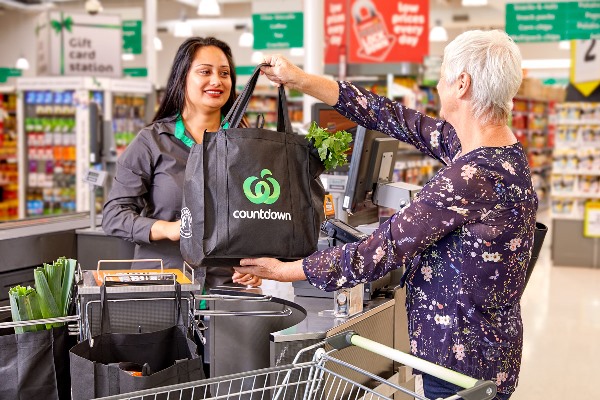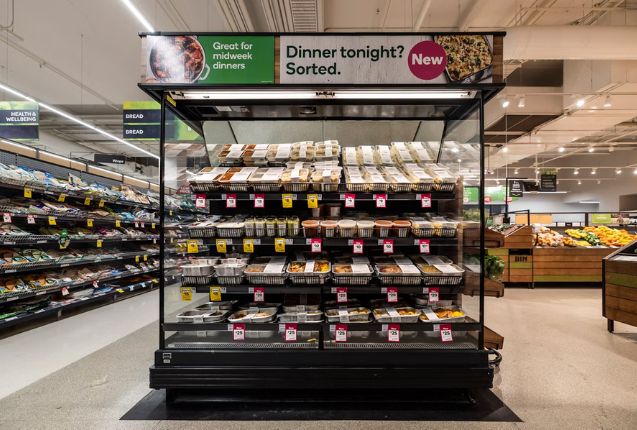Countdown customers will soon see paper bags available for purchase at checkouts, with the government ban on the sale and distribution of single-use plastic shopping bags coming into effect on 1 July.
The new paper bags are 100% recyclable, made from Forestry Stewardship Council (FSC) certified paper, and will cost 20c each.
Countdown says since it phased out single-use plastic carrier bags in October last year, the vast majority of customers are now bringing their own bags.
“We’re really pleased to see single-use plastic carrier bags banned in New Zealand,” says Kiri Hannifin, Countdown’s General Manager Corporate Affairs, Safety and Sustainability. “Our Countdown customers have led the way in their willingness to move to reusable bags and I hope this will help assure other retailers that it can be done easily.
“Bringing your own bags is a behaviour change that New Zealanders are really getting behind, and it’s always our first preference. We’ve recently started accepting BYO containers in our deli, meat and seafood counters in selected stores and we’re hoping to roll this out nationwide shortly too.”
Countdown has a range of reusable bags available to purchase in-store and this includes a new, 100% recyclable paper bag, instead of the previous multi-use plastic bag as this has been excluded in the new legislation. Also excluded are compostable and biodegradable shopping bags under 70 microns.
Countdown’s most popular reusable bag is its $1 Bag for Good, which Countdown replaces for free when it wears out. “We know that customers are going to forget their bags sometimes, and we want to make sure we have sustainable and affordable choices in-store for when they do,” says Hannifin.
The move away from single-use plastic carrier bags at Countdown has meant that 350 million of these bags are no longer entering the New Zealand waste stream each year.
“At the moment, our priority is reducing and removing as much unnecessary single-use plastic and packaging as possible from across our business,” says Hannifin. “At the same time, we have an extensive programme of work underway to look at our plastic use, the type being used and why, what alternatives there may be and whether these will be suitable for New Zealand’s waste infrastructure.
“This includes reducing plastic where possible, trialling different bag options in bakery, installing produce misting systems to remove the need for packaging on fruit and veges, and supporting the return of the soft plastics recycling scheme in a number of its Auckland stores.”



